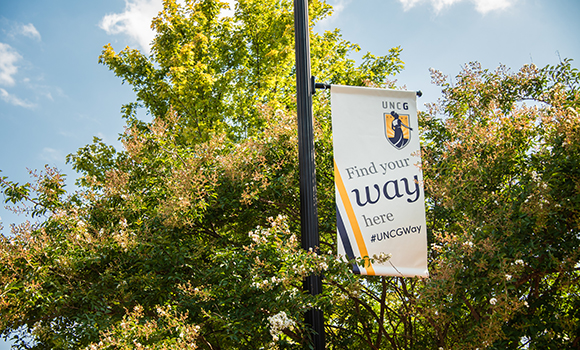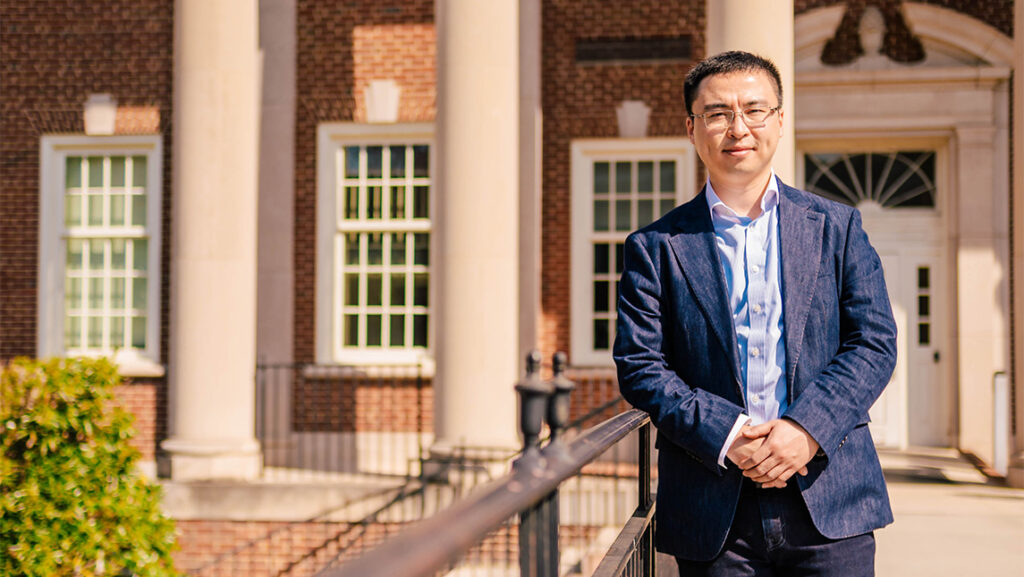In North Carolina, deaths by opiates such as fentanyl and heroin increased 900 percent from 2010 to 2016, with Guilford County leading the state in mortality rates due to these opiates, among others.
Dr. Danielle Swick and her UNC Greensboro Social Work colleagues are hoping a $1.1 million grant from the Health Resources and Services Administration (HRSA) will combat this problem and ultimately decrease the number of opioid-related deaths in Guilford County.
“People are dying, and it’s our kids and our parents and our siblings,” said Mike Thull, the clinical supervisor at Guilford County Solution to the Opioid Problem (GCSTOP), a program administered by UNCG’s Department of Social Work and a major partner in the HRSA grant.
Swick is the principal investigator for the Opioid Workforce Expansion Program, which will provide 66 students in the UNCG-N.C. A&T joint master’s in social work program a $10,000 stipend and training over a period of three years. She is working with co-investigators Dr. Yarneccia Dyson, Dr. Melissa Floyd-Pickard, and Dr. Jay Poole.
It’s the first time the department has been awarded a HRSA grant specific to opioid and substance use.
“The funding has the potential to be life-changing for our master’s students, many of whom are first-generation students from underrepresented racial minorities,” Swick said.
Students in the program will graduate with a degree recognized by the North Carolina Substance Abuse Professional Practice Board, creating a streamlined path to professional licensure.
“With UNCG and North Carolina A&T’s low tuition, the HRSA funds enable advanced year JMSW students to reduce their overall debt and to protect their future earnings,” Dyson said. “This is especially important for social workers, since many will spend their careers in the public sector in local, state, and federal positions, with varying salary ranges in comparison to their colleagues in the private sector.”
One of the project’s main goals is to increase the number of behavioral health professionals trained in the delivery of opioid use and substance use prevention, treatment, and recovery services.
Funds will be used to train students and faculty on opioid use and substance use disorders and provide internship experiences with agencies like GCSTOP. So far, 28 agencies have jumped on board, including Caring Services, Inc. (High Point), Alcohol and Drug Services (Greensboro), Insight Human Services (Winston-Salem), Path of Hope (Lexington), and Triad Health Project.
Social work is uniquely positioned for this work, Swick said, as social workers are the largest group of behavioral health and mental health providers in the U.S.
“Social work is also one of the fastest-growing occupations,” she said. “Social workers are being trained more and more to work in interdisciplinary teams and to treat the ‘whole person’ – not just addressing physical health, not just mental health, but all of those needs.”
Grant funds will also make an impact on children and adolescents in rural communities, providing Rockingham County Schools on-site training for school staff working around issues of opioid use and substance use disorder.
“Opioid and substance use happens across the lifespan, and we’re seeing it rising in both adolescents and their parents,” Swick said.
Other plans include developing a graduate course in substance use that will be open to all majors. The Dept. of Social Work is slated to host a regional conference on the project in the spring of 2021 and a national conference in 2022.
“We are excited to disseminate best practices for engaging people who are experiencing opioid use and substance use disorders,” Dyson said.
“In the end,” Thull said, “I think the combination of these programs and the fact that hopefully we’ll be able to send well-equipped social workers to address the epidemic will mean fewer people dying.”



